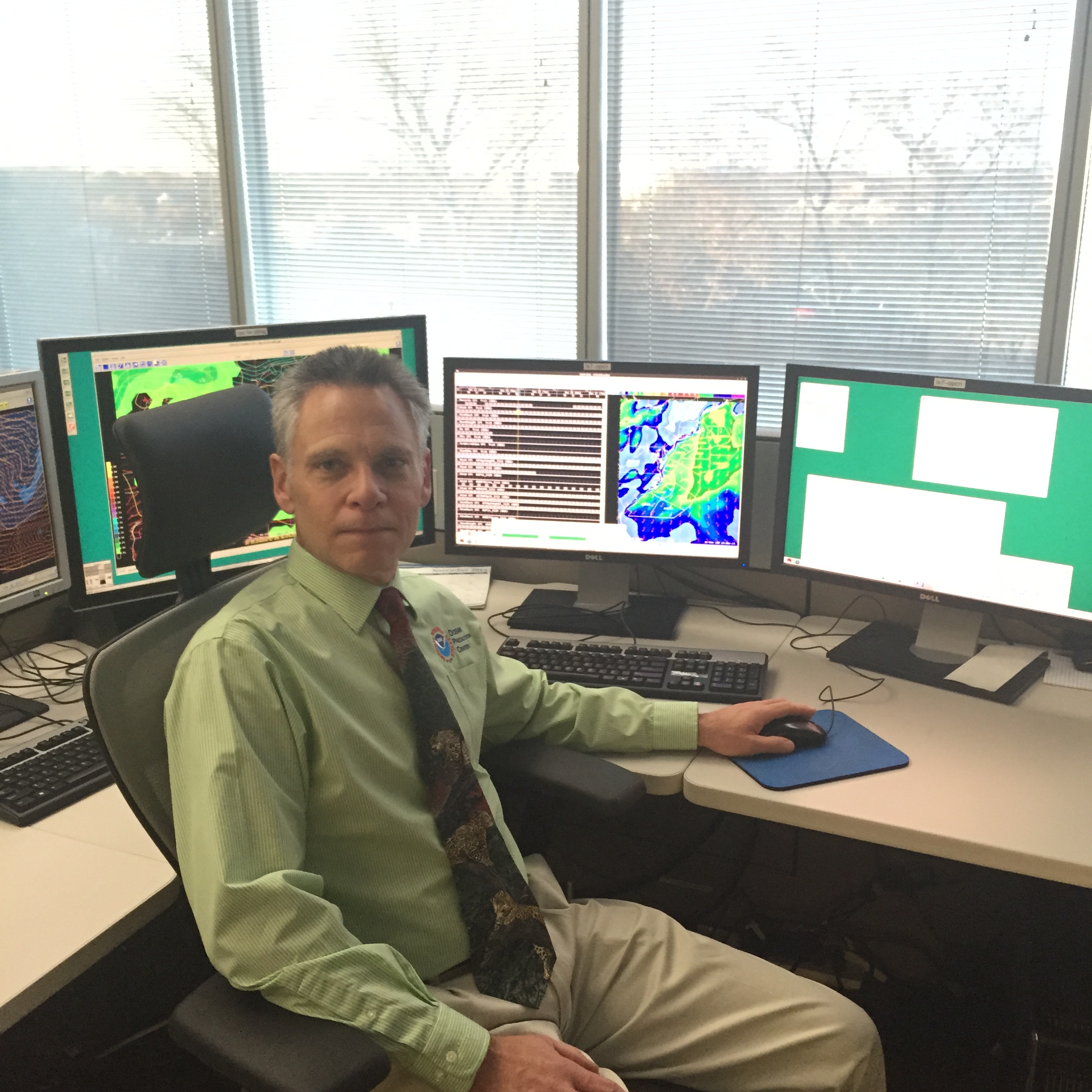| Hurricane Warnings in Effect | Pacific: High Seas EP1 and EPI |
Get to Know OPC - Scott Prosise
 Scott Prosise
Scott Prosise
Senior Marine Forecaster
Ocean Forecaster Branch
Ocean Prediction Center
What first got you interested in weather and meteorology?
When I was about 8 or 9 years old I really liked it when snow closed school, because like most kids I’d rather stay home and play. I realized it’d be good to know ahead of time when the snow was coming and I could have a day off of school.
Which college did you attend? What was your major?
Much of my education came through schools in the Navy. I added to that with educational classes at the University of Maryland, and San Jose St. University. My degree is in Information Systems from Columbia Union College in Takoma Park, MD.
How long have you been a meteorologist or marine forecaster?
Including my military time, because I went into the military as an aerographer in the Navy, it goes all the way back to 1976 which would be about 38 years.
How long have you been with the Ocean Prediction Center? How were you hired?
I’ve been with the Ocean Prediction Center for about 20 years. At the time I was working for the National Ocean Service doing marine quality control data. The NOS unit closed and was absorbed by what is now the OPC.
Which offices have you worked in as a meteorologist? How have they been different from working with the OPC?
As a meteorologist I’ve spent nearly all my professional years with the OPC. Before that I worked as a Meteorological Technician at the forecast office in Washington, DC, and also in the Basic and Aviation Weather branches at the National Meteorological Center (NMC), which became NCEP in 1995. As a technician I plotted weather charts, collected and analyzed weather data, and made recordings for NOAA Weather Radio.
What’s the hardest thing about being a meteorologist?
Keeping track of all the data, because as meteorologists we look at quite a bit of data from models, satellites, ships etc. I try to assimilate it all, but at the same time I’m always looking for more data. There’s so many different ways to look at sections of the atmosphere. Sometimes it can be overwhelming to know what you want to look at to get the best forecast.
What’s your least favorite part of the job?
It’s tough being a shift-worker because not only does it make you tired, but you’re less efficient at night and it’s harder to do your best, especially when it’s 4am.
When it comes to weather what’s your favorite aspect?
Snow storms, of course!
What is the most memorable weather event that you have worked through?
When I was in the Navy I was stationed at Corpus Christi, TX. At that time Hurricane Allen was the second strongest hurricane on record. It had winds up to 190 mph and was making a direct beeline to the Texas Gulf Coast. Personnel at the Naval Weather Station were one of the few who were unable to evacuate the base when Hurricane Allen came. It was a little scary. I remember all of us boarding up our windows in the barracks and pushing furniture up against the window to keep out the debris that could fly into the room.
When you leave work do you find yourself checking weather from home?
Guilty as charged.
Are there any other interesting tidbits about yourself you’d like to share?
When I’m not at work, I just enjoy traveling the country, camping with my family, and gardening at home. It’s just a good time to kind of unwind and take a break from the stress of all the shift-work.
View all stories in "Get to Know OPC"


